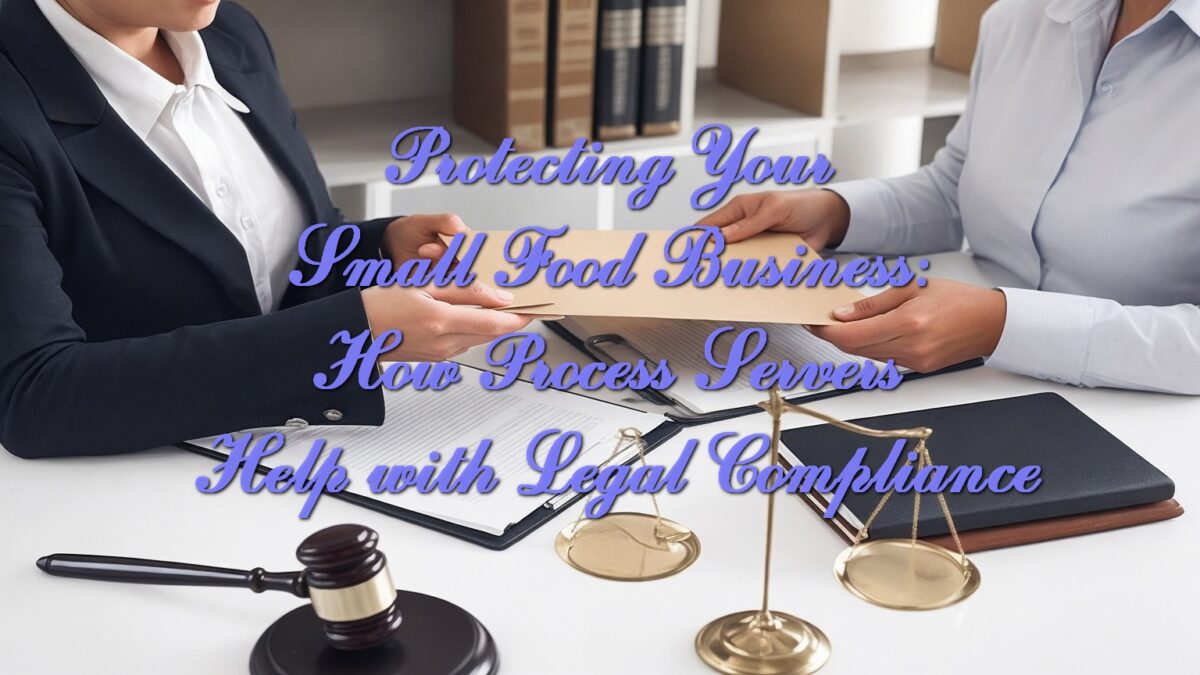Starting and managing a small food business can be a dream come true for many entrepreneurs. However, amidst the hustle and bustle of creating delicious dishes and delighting customers, it’s crucial not to overlook the importance of legal compliance. Failing to adhere to local, state, and federal regulations can lead to costly fines, reputation damage, and even closure. Process servers play a vital role in helping small food businesses protect themselves legally. In this article, we will explore how process servers can assist in legal compliance under five key headings.
Legal Notifications and Documentation

Process servers are professionals who specialize in delivering legal documents to individuals and businesses. In the context of a small food business, they play a critical role in ensuring that you receive and respond to essential legal notifications and documentation. This includes everything from health department inspections and food safety regulations to employment-related notices. Process servers help you stay informed and ensure you are aware of your legal obligations.
Licensing and Permits
To operate a food business, you typically need various licenses and permits. These legal requirements can be complex and vary from one jurisdiction to another. Process servers can assist by helping you obtain, renew, and stay up to date on the necessary licenses and permits. They can notify you of renewal deadlines, assist with the application process, and ensure that your small food business remains compliant with local, state, and federal regulations.
Lawsuits and Legal Actions

No business is immune to legal challenges. In the event that your small food business faces a lawsuit, it’s crucial to be promptly informed and respond appropriately. Process servers are responsible for delivering legal documents related to lawsuits, such as summons and complaints. By ensuring you receive these documents in a timely manner, process servers enable you to engage legal counsel, prepare your defense, and meet any court-imposed deadlines.
Employment Compliance
Small food businesses often employ a team of workers to help run their operations smoothly. Compliance with employment laws is essential to avoid legal troubles. Process servers can assist in ensuring that you are aware of and adhere to labor laws, including minimum wage, overtime, and employee rights. They can deliver notices about labor department inspections, wage disputes, or other employment-related matters, allowing you to address them proactively.
Health and Safety Compliance
One of the most critical aspects of a food business is health and safety compliance. Food safety regulations are strict, and violations can result in severe consequences, including shutdowns. Process servers can deliver notices related to health department inspections, food safety violations, or recalls of food products. Being promptly informed about such matters allows you to rectify any issues, demonstrate your commitment to food safety, and maintain a positive reputation.
In conclusion, running a small food business requires not only a passion for food but also a commitment to legal compliance. Process servers play a pivotal role in helping you navigate the complex world of regulations and legal requirements. They ensure that you receive essential notifications, assist with obtaining licenses and permits, help you respond to legal actions, keep you informed about employment compliance, and enable you to address health and safety concerns. By leveraging the services of process servers, your small food business can focus on what it does best – serving delicious food – while staying on the right side of the law, protecting your reputation, and ensuring long-term success.

 Welcome to my blog, which is dedicated to home cooking. In this blog you will find a lot of simple and delicious recipes for cooking for your family.
Welcome to my blog, which is dedicated to home cooking. In this blog you will find a lot of simple and delicious recipes for cooking for your family.